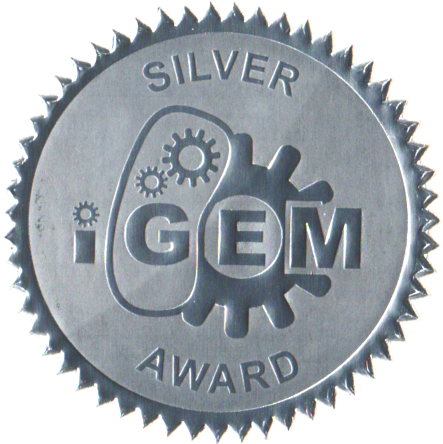(fixes) |
m |
||
| Line 4: | Line 4: | ||
<html> | <html> | ||
<div class="giantJamboreeResults col-sm-12 col-sm-10 col-xs-offset-0 col-sm-offset-1"> | <div class="giantJamboreeResults col-sm-12 col-sm-10 col-xs-offset-0 col-sm-offset-1"> | ||
| − | <div class="giantJamboreeResults- | + | <div class="giantJamboreeResults-noPadding"> |
<img class="img-20 img-20-50" src="//2016.igem.org/wiki/images/8/8a/T--UBonn_HBRS--igem_silver_award.png" alt="iGEM Silver Award" /> | <img class="img-20 img-20-50" src="//2016.igem.org/wiki/images/8/8a/T--UBonn_HBRS--igem_silver_award.png" alt="iGEM Silver Award" /> | ||
<div class="pull-right"> | <div class="pull-right"> | ||
Revision as of 22:21, 30 November 2016
Enzymatic Whitewashing - the ecological approach to paper recycling

Giant Jamboree Results
- Won Silver Award
- Nominated for Best Poster
Our project in a nutshell
Recycling of printed paper has made an indisputable contribution to conserving our environment.
However, current recycling methods consume vast amounts of energy and release toxic byproducts.

Prior research has identified a number of enzyme classes that can efficiently replace the chemicals currently used in paper recycling. Despite their ability to facilitate the separation of ink particles from paper fibers, a process called deinking, enzymes have not been widely used industrially due to insufficient knowledge about efficiency and costly production and purification methods.

In our project, we tackled these issues and took significant steps towards catalyzing research in the area and applying enzymatic paper recycling on an industrial scale. We developed a high throughput system which not only allows us to quantify deinking efficiency, but also to cheaply mass produce enzymes using a Bacillus subtilis secretion system.

Have you already seen our Sponsors?
We are very thankful to our Sponsors for making our project possible!Please check them out on our dedicated
Sponsors Page



